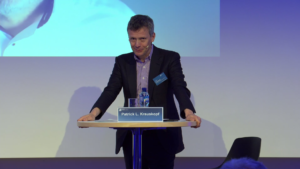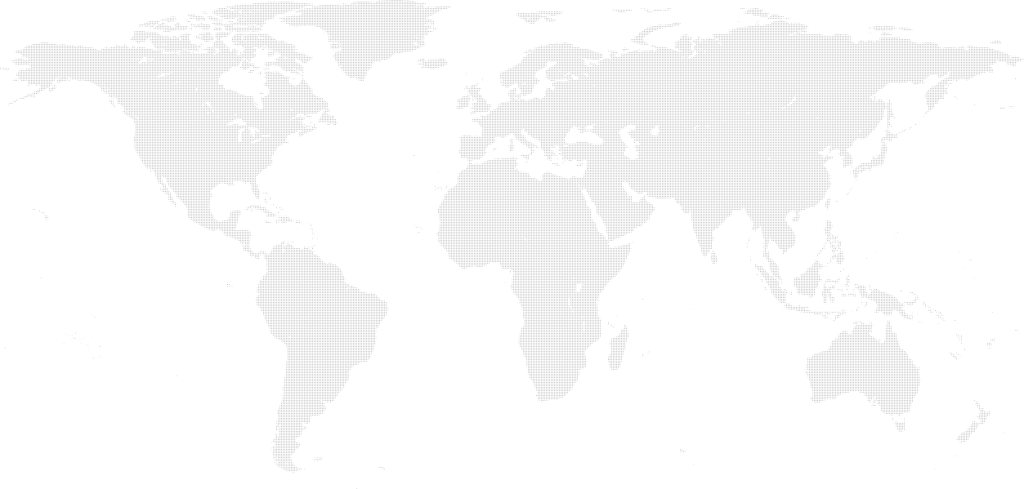Value Based Legal Communication in the Public and the Media
Litigation PR Conference 2021
The 6th Litigation PR Conference took place on 11 November 2021 under the title “Value-based legal communication in the public and press”. This year 21 experts were welcomed at the ZHAW SML, including Florian Klenk, Béatrice Wertli, Christopher Hauss, Marcel Kohler and Sanija Ameti.
The 6th Litigation PR Conference 2021 also took place under the impressions and measures to contain the Corona pandemic. Nevertheless, Prof. Dr. Patrick Krauskopf, host of the conference and head of the Center for Competition Law and Compliance at the ZHAW SML, was able to welcome a good 100 participants from Germany, Austria and Switzerland not only digitally, but also on site. The ZHAW SML is thus living up to its claim to be a space for inter- and transdisciplinary exchange between academia and practice in litigation PR, even in difficult times. Finally, Prof. Dr. Jens Lehne, head of the Business Law Department at the ZHAW SML, set the scene for the discourse: the increasing polarisation of society due to crises such as the current pandemic and social media. Because communicating sustainably in such an uncertain environment is becoming increasingly difficult for organisations.
Introduction by Prof. Dr. Jens Lehne: Link to video recording on YouTube
Nik Gugger: “The ZHAW SML as a place for the theory and practice of litigation PR”.
The first key note speaker was Swiss National Councillor and social entrepreneur Nik Gugger. In his view, there is currently a lack of a fundamental understanding of what litigation PR is and when practitioners in politics, business and society need the relevant expertise, although the need for corresponding expertise and advice is great. An institution like the ZHAW SML, which combines theory and practice, can be the ideal place to create this basic understanding. For this, it needs a place of active, open, but also critical exchange and reflection between researchers, learners, teachers and users from business, science, politics and society. Accordingly, it is not only the ZHAW as an institution that must “nurture the tender plant of litigation PR”, but also politics and business that must support the corresponding efforts.
Key note by Nik Gugger: Link to video recording on YouTube
Béatrice Wertli and Christopher Hauss: “Litigation PR in the area of tension between “critical press” and “press campaigning””.
Afterwards, Béatrice Wertli, Director and Chair of the Executive Board of the Swiss Gymnastics Federation (STV), and Christopher Hauss, spokesperson for VW Litigation Communications, discussed the area of tension between critical press coverage and organised “press campaigning”. Moderated by Patrick Krauskopf, the questions associated with the topic of the interview were examined from various perspectives, especially with regard to the differences between Switzerland and Germany, the challenge of communicating one’s own content to the interested public as well as the media in a sustainable manner, and the differences between a company like VW and an association like the STV. Both Béatrice Wertli and Christopher Hauss agreed that personal relationships with media and media professionals are a “must”. This is because these personal relationships, unlike press releases, make it possible to communicate one’s own perspective in an appropriately sustainable way. Especially in crisis situations, it is not a matter of “talking things up”, but of explaining and contextualising one’s own actions.
Interview by Béatrice Wertli and Christopher Hauss: Link to video recording on YouTube.
Hans-Peter Huber and Ralf Kunkel: “Judges also read newspapers”.
Ralf Kunkel, Managing Director of the Bernstein Group, and Hans-Peter Huber, lawyer at Tsambikakis & Partner Rechtsanwälte mbB, were digitally connected from Berlin. In their presentation, they focused on what it means that judges also consume media in their professional and private everyday life. For this leads to the conclusion that judges are also “very much susceptible to influence”, both in a positive and negative sense. In order to take this fact into account in the context of a legal process, lawyers and communication experts in litigation PR must understand that they have to form a team in which the competence of each individual is of equal importance for the success in the respective proceedings. Only through this cooperation can synergies be created, which, especially in critical situations, can create the basis for a sustainable, strategic communication strategy, both in the court of public opinion and in the courtroom.
Presentation by Hans-Peter Huber and Ralf Kunkel: Link to video recording on YouTube
Florian Klenk: “Lawyers, media and the fifth estate: on the value of ritualised truth-seeking in democracy”.
In the second key note of the day, the Austrian investigative journalist and editor-in-chief of falter, Dr. Florian Klenk, presented his analysis of the changes in the relationship between media, lawyers and social networks not only in recent years, but also with reference to current developments in Austria. On a financial level, the media are facing the challenge that social networks are sucking the financial basis out of journalism, while at the same time collecting data and using journalists’ content to make users stay even longer on their pages. At the same time, populists in particular have understood how social networks work and that they have direct access to an audience of millions without having to face critical questions. They abuse this opportunity to attack journalists, media professionals, prosecutors, defence lawyers and judges, while at the same time claiming that the “supposedly weak state” is “too slow or politically corrupt”. This leads to a “return of party political propaganda – with an intensity that we would have thought impossible ten years ago”, says Florian Klenk. As a result, not only journalists who want to report critically are then targeted and put under pressure in the context of legal disputes, but also lawyers and judges, be it through denunciation in social networks or doxing of individual employees of law enforcement agencies. According to Florian Klenk, one should not be “hysterical” about this and other negative developments, but nevertheless “vigilant”. Because journalists and lawyers, especially defence lawyers, are ultimately “not representatives and stooges of power, but its opponents”. The fact that the influence of social media also changes the expectations of the audience was confirmed by Marcel Kohler, managing director of 20min, in the two-way discussion that followed: “People tend to be socialised by social media. They have the impression that they have a right to have their comments printed on 20min.
Key note by Florian Klenk: Link to video recording on YouTube
Discussion by Marcel Kohler and Florian Klenk: Link to video recording on YouTube
Panel: “Emotions instead of facts? Value-based legal communication in the public sphere and the media”.
In the subsequent “all female” panel, moderated by Claudia Sedioli, lecturer at the ZHAW IAM, the participants discussed their views as experts on the topic “Emotions instead of facts? Value-based legal communication in the public sphere and the media”. The focus was on the question “what role do values play in communication when it comes to classic litigation PR”, be it in politics, for companies, but also in association communication or for interest groups and political organisations. For Dagmar Jenni, Director of the Swiss Retail Federation, the current debates are not new, but values have become more important, both in public and private discourse, which brings with it corresponding challenges. Sanija Ameti, a lawyer, doctoral student at the Institute for Public Law at the University of Bern and co-president of Operation Libero, pointed out that abstract legal terms often do not work in these debates. They have to be made more tangible – and unfortunately sometimes also more popular and thus more understandable. For Elisabeth Pechmann, ommunication expert and owner of PECHMANN_NETZWERK in Austria, values are “the sad victims of abuse in corporate communication”. She gave the participants the following guiding questions when developing strategies in litigation PR: “Who do I set as representation? What escalation levels do I prepare? How do I develop the frame, story and roles and how do I fill them?”
Panel with Dagmar Jenni, Sanija Ameti and Elisabeth Pechmann: Link to video recording on YouTube
Patrick Krauskopf concluded the 6th Litigation PR Conference with a summary of the conference and a vote of thanks to the experts, participants and partners. The 7th Litigation PR Conference will take place on 10 November 2022. All information on this as well as the possibility to register for the newsletter is available on the conference website: https://www.litigation-pr.eu.
Hybrid Litigation PR Conference
Holding the conference as a hybrid event also required some other structural adjustments. For example, the conference was offered live via YouTube as a stream, while the participants were directly involved in the exchange on site. In the future, the Litigation PR Conference will continue to rely on corresponding hybrid elements in order to be able to involve participants in the discourse in different ways. The exact design will be evaluated and further developed in the coming months.
The workshops of the 6th Litigation PR Conference
In 2021, participants were again able to choose from a diverse range of workshops. Daniela Frau and Michael Rudin dealt with the topic “Diversity: Crises and Opportunities in Management and Communication“. Dr. Adis Merzanovic, Dr. Adrienne Suvada and Christoph Abels focused on the topic of “Shitstorms and Cancel Culture – How the communications department and legal service can work together in a crisis“. Finally, Dr Katharina Hastenrath and Kay Weidner discussed the topic “Communication before, during and after antitrust proceedings – trivial offence or worst case scenario“.
Gala dinner with Federal Judge Dr. Christoph Hurni
Once again this year, the conference was followed by a gala dinner at the Haus zu Geduld in Winterthur. The key note on inspiration was given by Swiss Federal Judge Dr. Christoph Hurni. Due to the measures taken to contain the Corona pandemic, the number of guests at the gala dinner had to be smaller this year.




